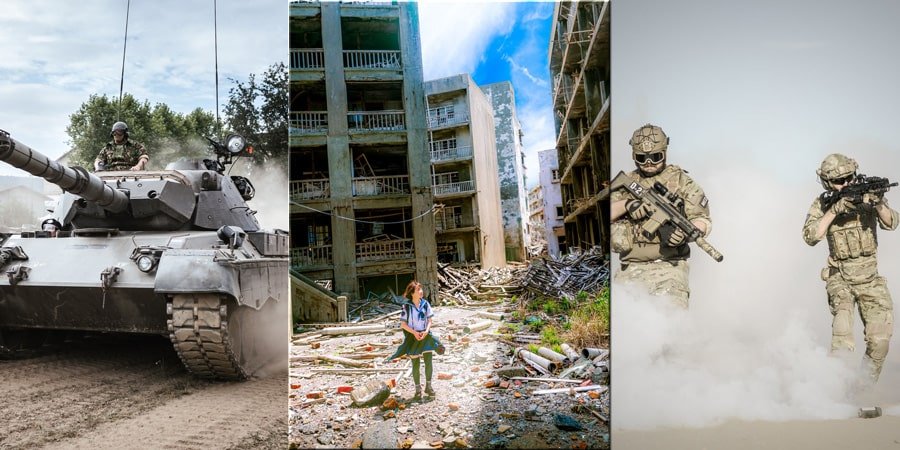Psychological Impact of War on Children

The laughter of playgrounds replaced by the echoes of explosions – this is the haunting reality for millions of children caught in the crossfire of war.
War is a brutal reality that no child should ever endure. Yet, each year, millions of young lives are torn apart by the devastating consequences of armed conflict. While adults may feel overwhelmed by the gravity of this issue, imagine the fear, confusion, and powerlessness that a child must experience in the face of such senseless violence.
The Psychological Toll
The trauma of war leaves deep scars on young, vulnerable minds. From PTSD to depression, the psychological impact can last a lifetime. The heartbreaking truth is that many children suffer in silence, unable to express the horrors they’ve witnessed. But there is hope. With the right support and resources, children can learn to cope with their experiences and find the strength to heal.
In Afghanistan, children have faced poverty, starvation, violence, and death for decades. Many suffer from depression and anxiety, yet lack access to essential support services. According to a 2019 study by Save the Children, two-thirds of Afghan parents reported that their children live in constant fear of bombs, kidnappings, and other forms of extreme violence, even on their way to school.
The Unique Challenges of Refugee Children
For refugee children, the trauma is doubled. They flee war zones only to face the challenges of adjusting to life in foreign societies, often separated from family and friends. The longer a war lasts, the deeper the wounds become, making it even harder for children to find peace.
The Wounds of War
The brutality of bombings, shellings, sniper fire, and landmines, along with witnessing death and injury, instills deep fear in children. They endure prolonged anxiety, fear of further attacks, and worry about missing family members and basic needs like food. These experiences can lead to long-lasting mental health issues, including PTSD, depression, and anxiety.
The Weight of Loss
Children mourn the loss of parents, siblings, homes, schools, and even their own physical health. This overwhelming sorrow can turn into depression, and their anger may be directed at the unknown perpetrators of their misery. Older children are particularly affected as they understand the stark contrast between their past lives and their current struggles in refugee camps.
Resilience Amidst Adversity
Despite the horrors, some children develop an incredible resilience. They find joy, determination, and a desire to work for a better future, even in the darkest times. However, many children continue to suffer from recurrent memories, nightmares, and an ever-present fear of danger.
The Long Road to Recovery
The symptoms of trauma often lessen once the immediate danger has passed, but they can persist for years, especially in children aged 5 to 11 who are acutely aware of war’s realities. Anxiety, depression, and behavioral disorders are common, with some children becoming aggressive or engaging in rule-breaking behaviors.
The Impact of Abnormal Attachment
War disrupts the normal development of attachment in children, leading to long-term psychological problem. Unfortunately, this topic often receives little attention. Children who lose their parents may be adopted into other households, where they might face unequal treatment. This lack of equality can lead to a lifetime of misery and a higher risk of engaging in illegal activities, further destabilizing society.
A Plea for Peace
The consequences of war extend far beyond the battlefield, leaving a lasting negative impact on the most innocent among us. It’s time to put aside the greed and pride that fuel military conflicts and work towards a peaceful world where every child can thrive. Dialogue and respect for human rights must replace violence. War is never the solution.
Conclusion
War is a devastating force that robs children of their innocence, safety, and future. The psychological scars it leaves are profound and enduring. However, with collective effort, we can provide the support and resources these children need to heal and build a better future. The solution lies not in conflict but in understanding, dialogue, and a commitment to peace. Let us all strive to create a world where no child has to endure the horrors of war.